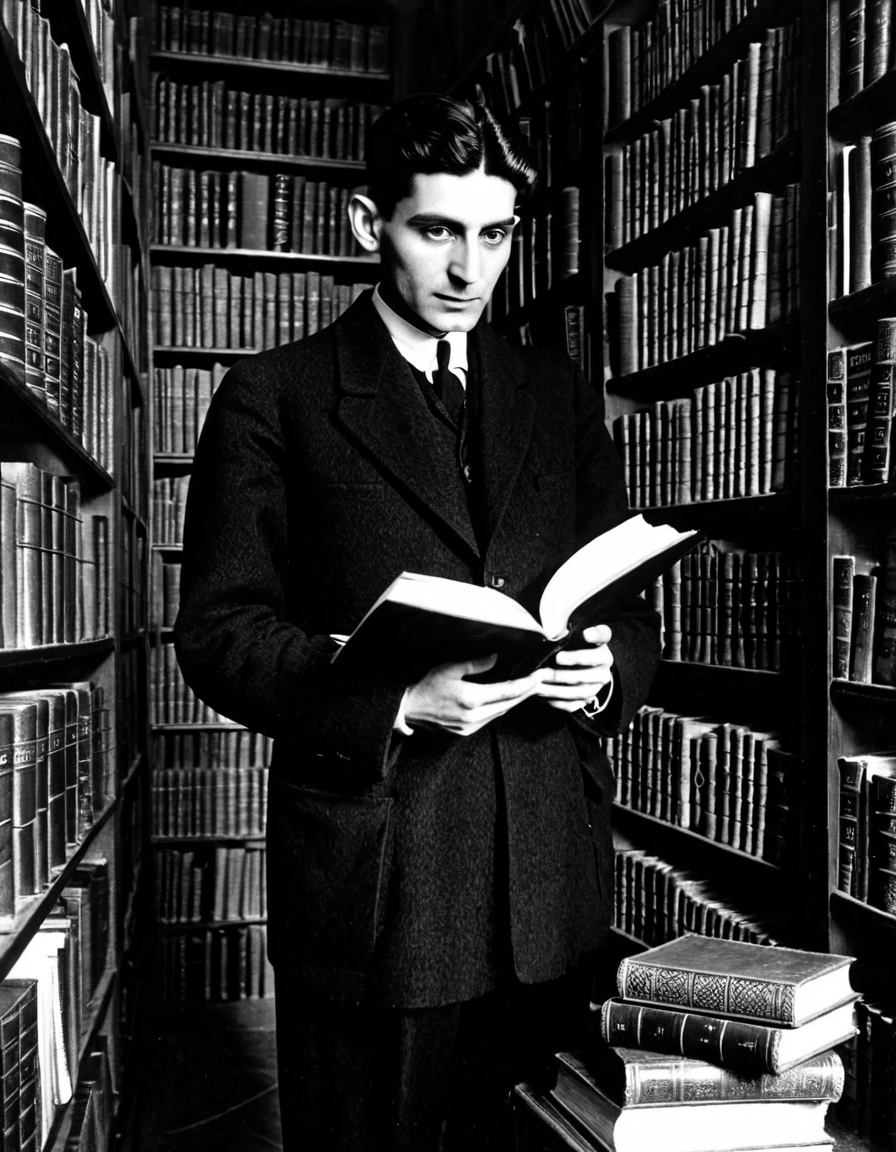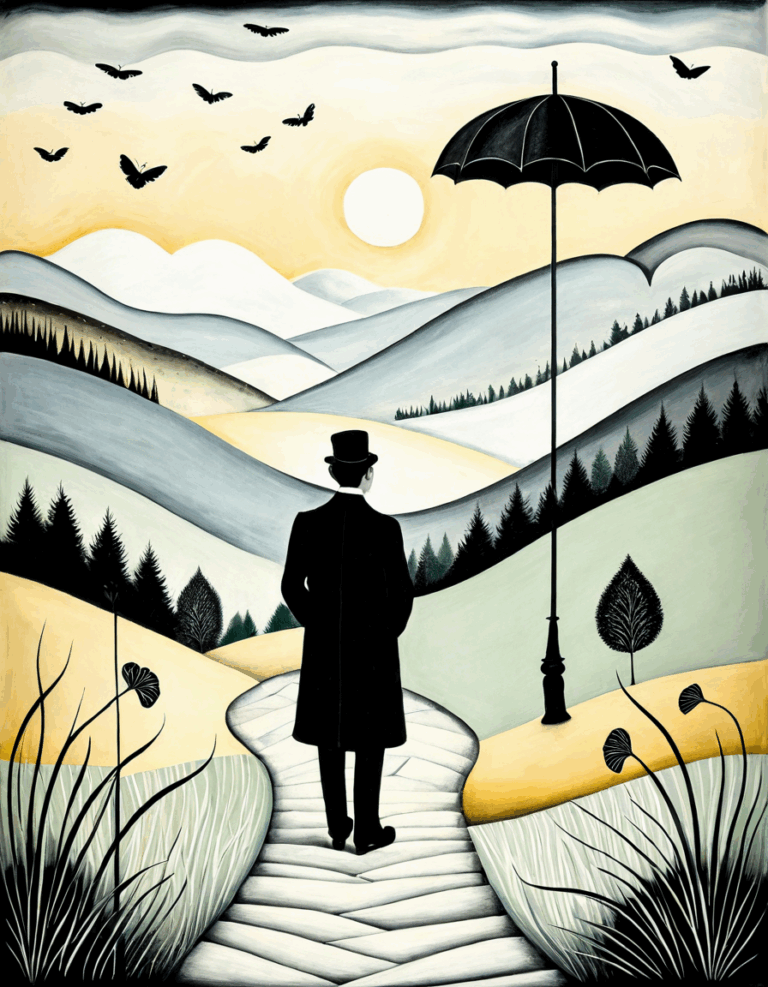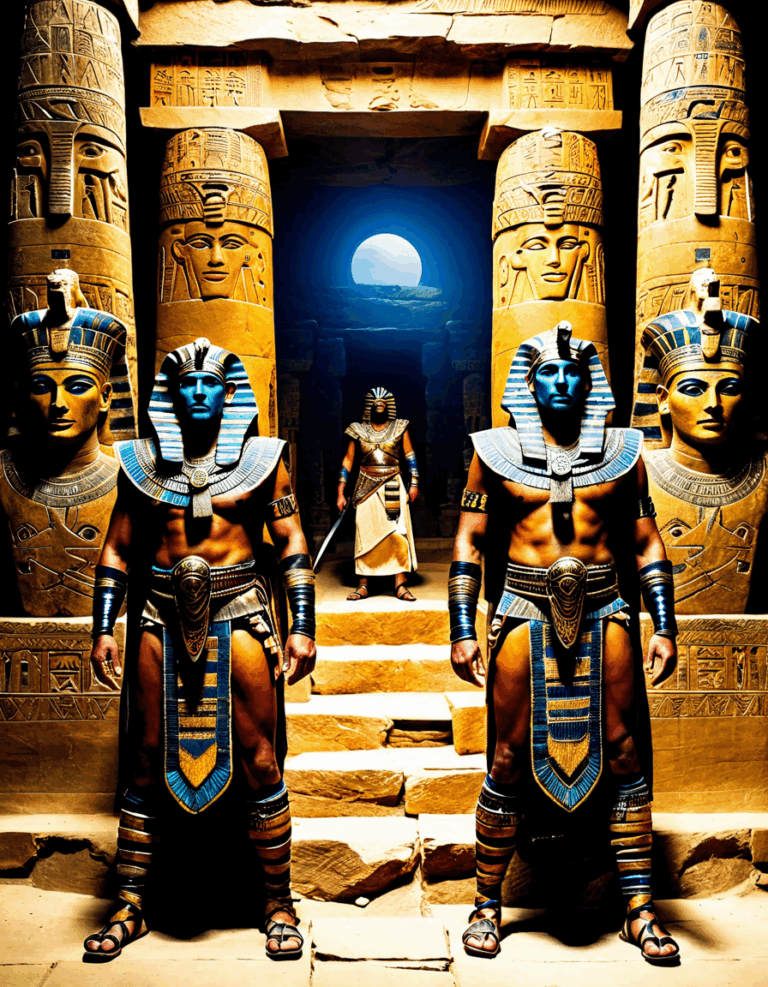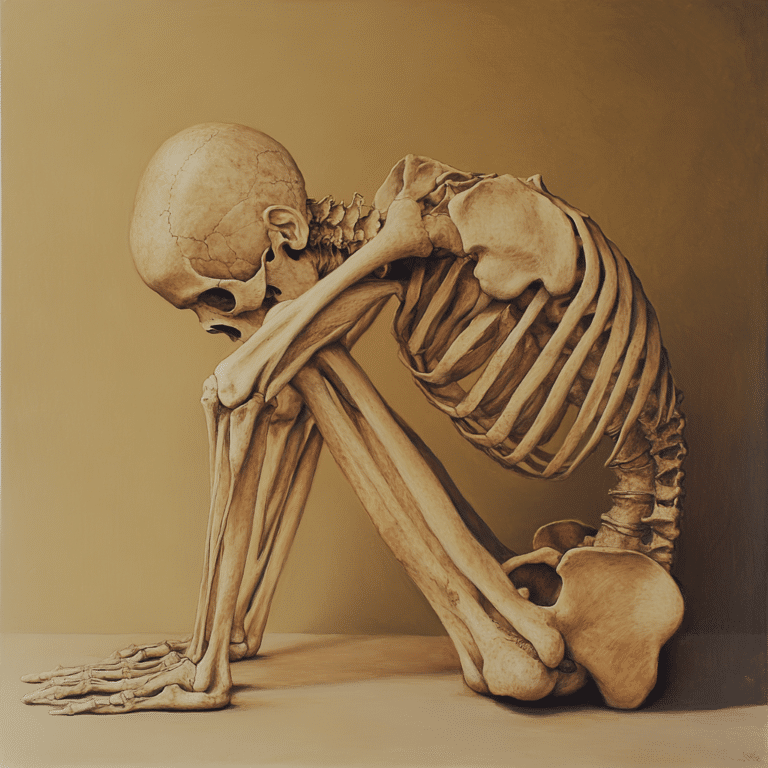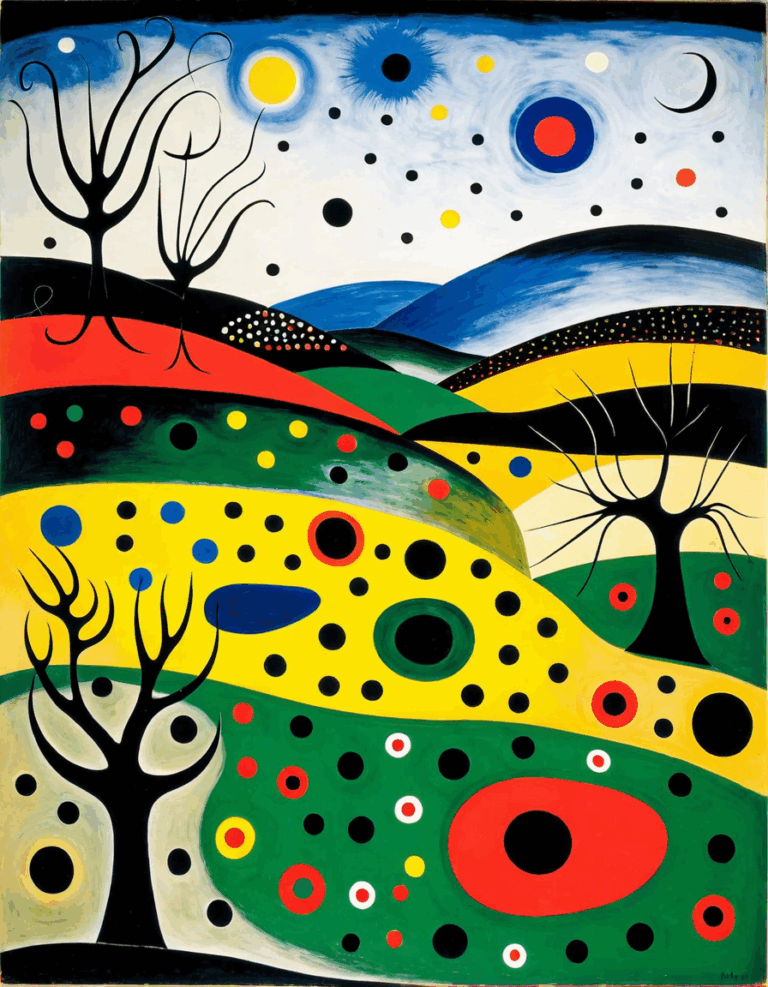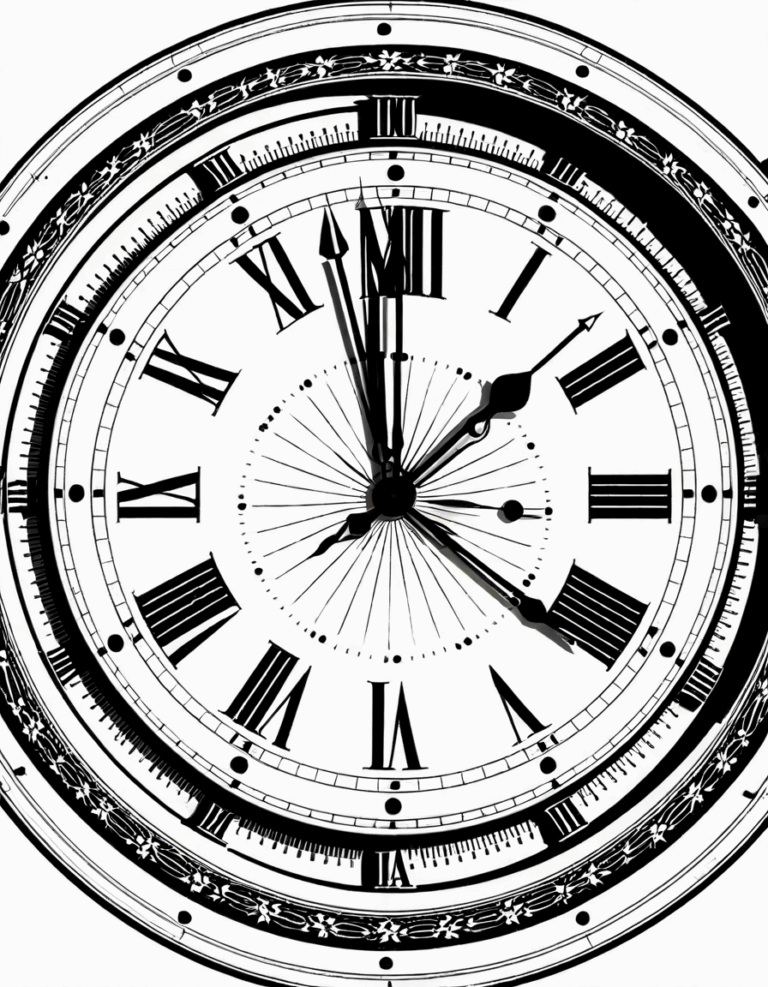Literature has undergone many transformations through the ages, but few writers have cast such a long shadow over existentialism and modernism as Franz Kafka. His exceptional vision speaks volumes, with themes of absurdity, alienation, and bureaucracy resonating deeply with the human condition. Today, we will dive into the extraordinary life and works of Kafka, exploring his profound influence on literature and the broader philosophical landscape.
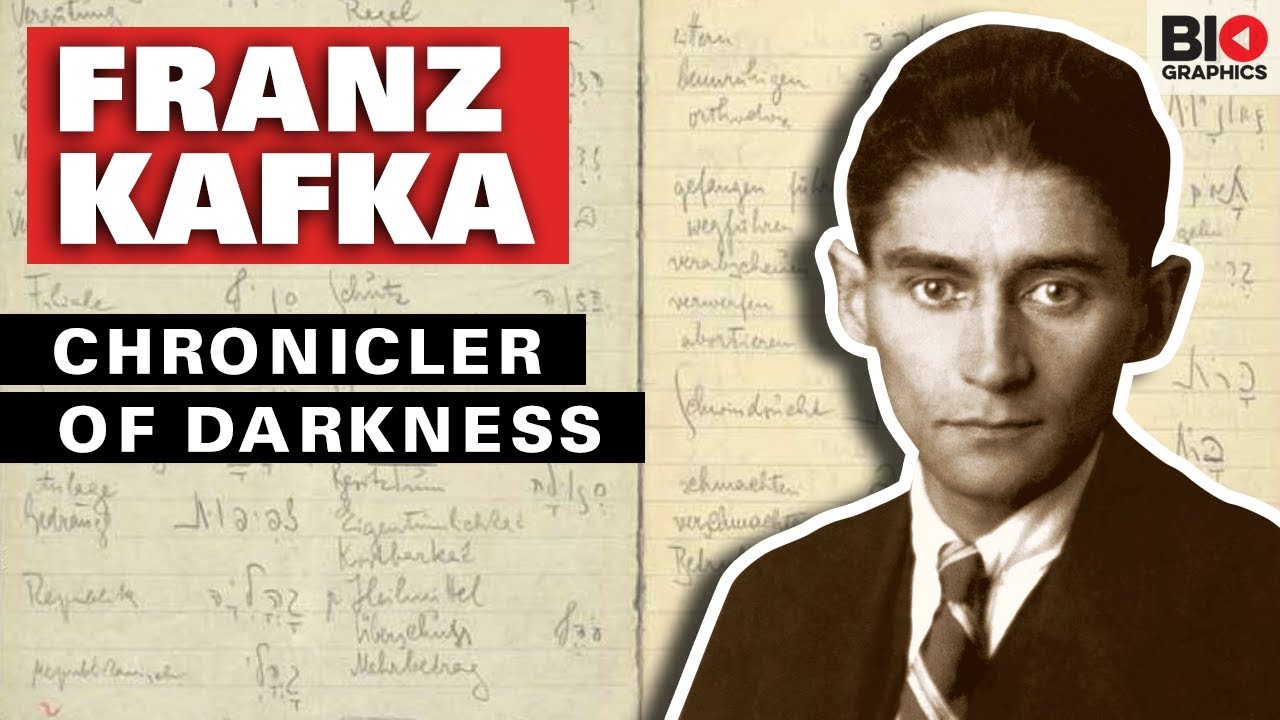
1. The Early Years: Kafka’s Formative Influences
Born on July 3, 1883, in Prague, then part of Austria-Hungary, Franz Kafka’s upbringing significantly influenced his literary output. Raised in a middle-class Jewish family, he grappled with the dual cultural influences of German and Czech, forging a rich but complex identity. His tumultuous relationship with his domineering father left psychological scars that echoed throughout his works, giving birth to the angst-ridden narratives we know so well.
Kafka’s early exposure to literature wasn’t limited to one genre or style, offering a medley that enriched his writing. Influences from German expressionist writers ignited his imagination, and existentialist concepts from thinkers like Søren Kierkegaard and Friedrich Nietzsche began to filter into his thoughts. These early brushes with literature sparked a questioning mindset that would later permeate his groundbreaking works.
2. Kafka’s Most Notable Works: Examining the Greats
Franz Kafka gifted the world several remarkable pieces that cemented his reputation as a literary giant. Here are his most impactful works that every literature lover should know:
3. Kafka’s Impact on Literature and Philosophy
Franz Kafka’s literary contributions are substantial, igniting philosophical debates and inspiring generations of writers and thinkers. His probing into absurdism paved a pathway for existentialists such as Albert Camus and Jean-Paul Sartre to explore similar themes associated with existence and meaning.
The term “Kafkaesque” now describes the irrational and nightmarish environments mirroring his works—scenarios tangled in frustrating bureaucracy. This term is not merely academic jargon; it resonates in popular culture, influencing literature, film, and even political discourse.
Moreover, Kafka’s themes of alienation and absurdity reverberate throughout the 21st-century landscape. They cut through the digital noise, echoing the sentiments of individuals grappling with alienation in an increasingly technocratic world.
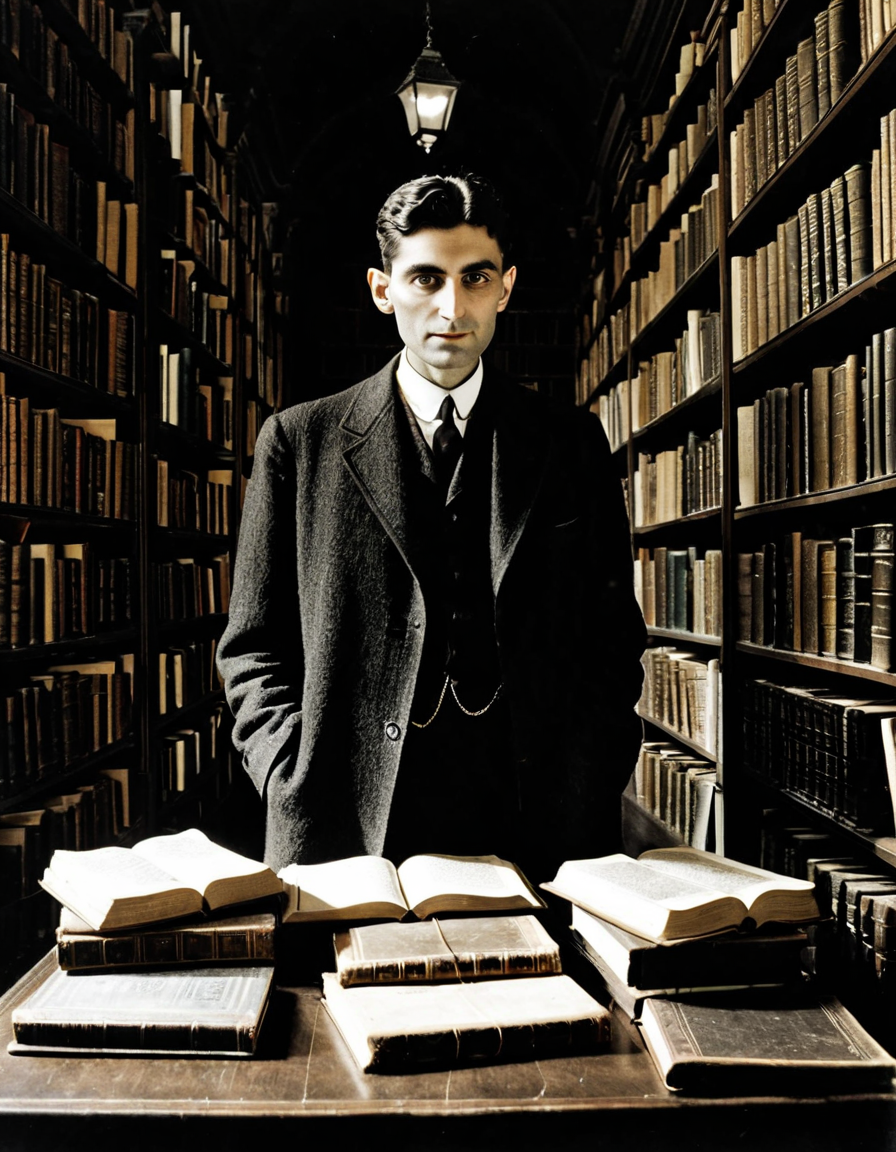
4. Kafka’s Personal Life: A Glimpse Behind the Curtain
Kafka’s life mirrored the contradictions found in his literature. While working as a lawyer, he often wrestled with dissatisfaction in a traditional career, choosing to prioritize his writing over time spent in legal pursuits. Even in his artistic ambition, self-doubt clung to him like a shadow; he once asked for his manuscripts to be destroyed after his death—a wish his friend Max Brod famously disregarded.
His personal relationships provide an intriguing lens through which to understand his literary figures, often beleaguered by existential despair. His correspondence with Felice Bauer and Milena Jesenská reveals layers of emotional depth, casting light on the complexities of love and isolation that suffuse his works.
Ultimately, Franz Kafka was a man of paradox, touching the heights of literary ambition while feeling profoundly disconnected from the world around him.
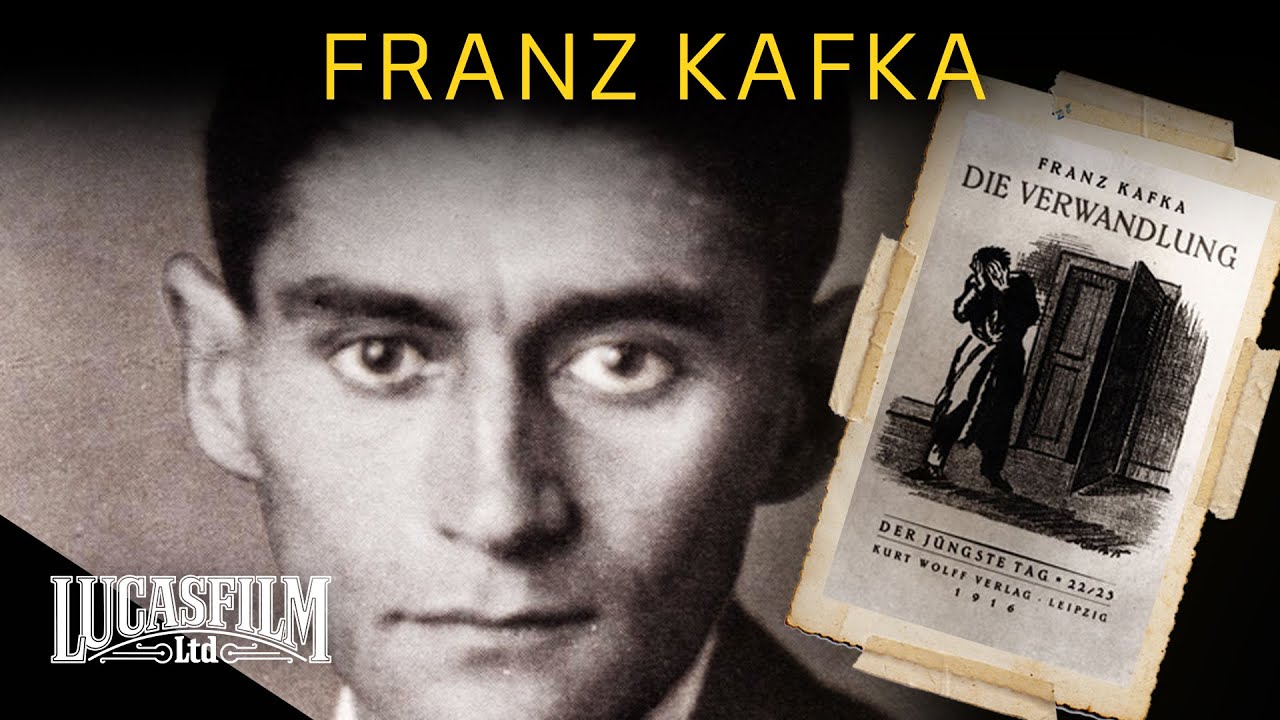
5. Kafka’s Legacy in Contemporary Culture
Today, Kafka’s influence extends far beyond the bookish confines of literary circles; it has permeated various cultural genres. Renowned directors like Orson Welles and Steven Soderbergh have adapted his works for the screen, attempting to capture the elusive spirit inherent to Kafka’s narratives while breathing life into them for contemporary audiences.
Moreover, the rise of digital culture has reignited interest in Kafka’s exploration of alienation. His reflections on bureaucratic absurdity resonate strongly in an age dominated by technology and social media. Many artists, writers, and performers persistently draw upon Kafka’s revolutionary voice, ensuring his literary legacy remains vibrant and relevant.
The surreal nature of Kafka’s narratives, coupled with their thematic richness, inspires filmmakers to create works that echo his existential questions—offering fresh perspectives that resonate with viewers today.
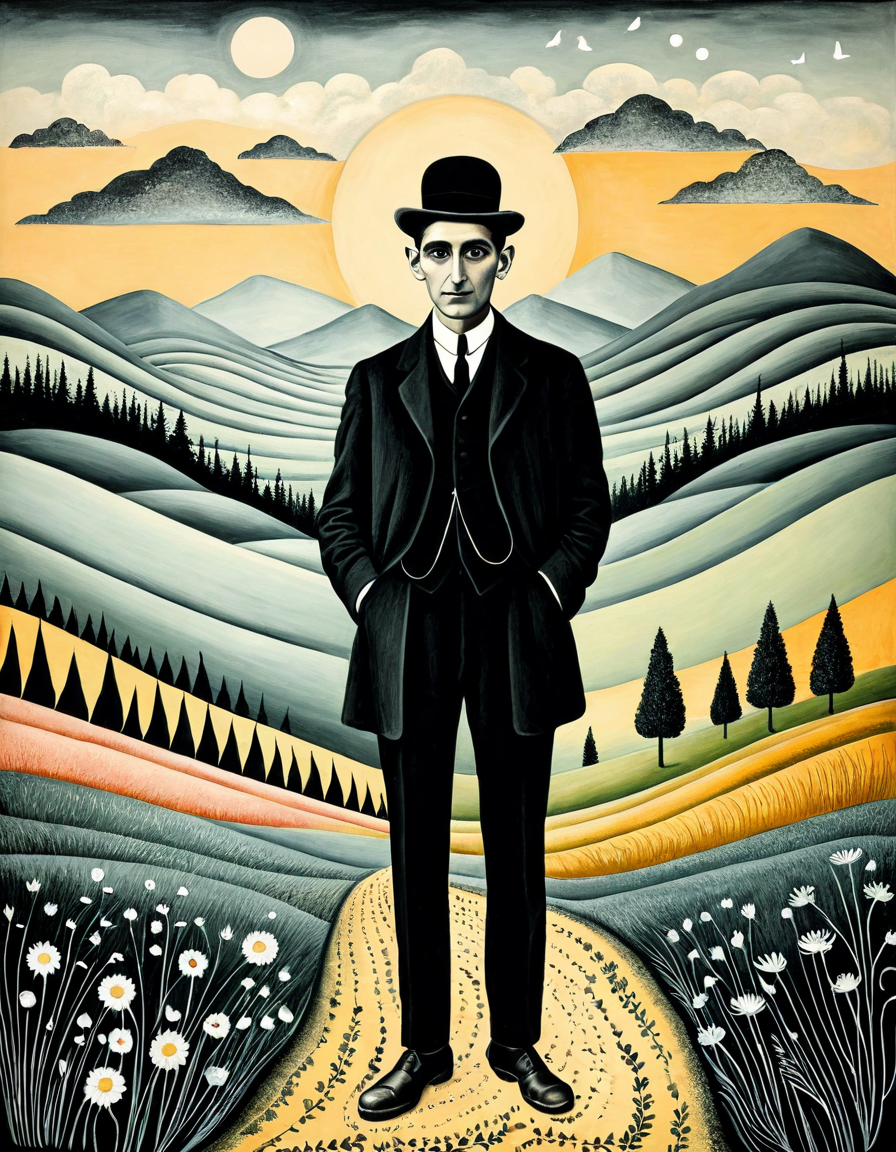
6. Understanding the Kafkaesque: Themes and Motifs
To fully appreciate Franz Kafka’s literary genius, one must delve into the recurrent themes and motifs woven throughout his works:
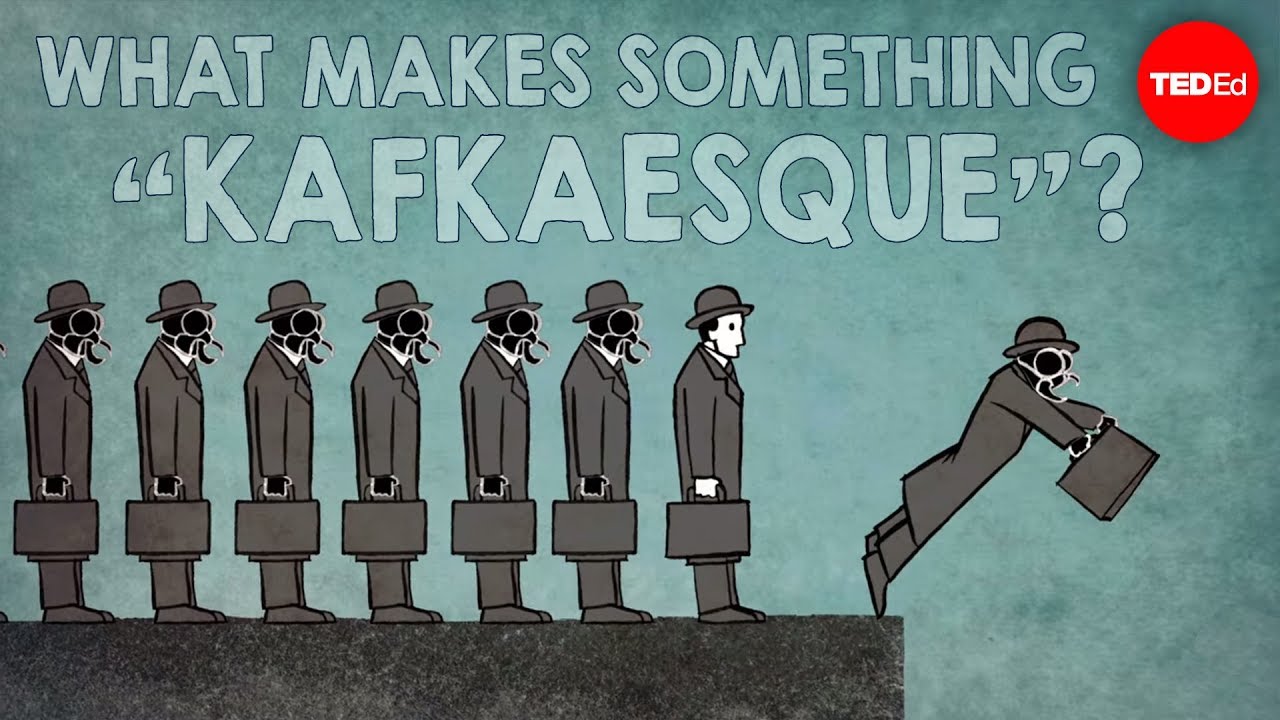
7. The Continued Exploration of Kafka’s Works
As society advances further into the 21st century, Franz Kafka’s literary works offer fertile ground for scholars, philosophers, and casual readers alike. They encourage ongoing dialogue surrounding themes of alienation, absurdity, and existence. Each new interpretation adds layers of meaning, making Kafka’s texts increasingly relevant to contemporary discourse on individuality, morality, and societal structure.
The fascination with Kafka’s genius lies in his unparalleled ability to articulate the complexities of human emotion and experience. Through exploring despair and disillusionment, he laid the groundwork for modern existentialism, encouraging readers to confront uncomfortable truths about life.
Kafka may no longer roam the streets of Prague, but his vivid imagination continues to inspire and provoke thought. His works serve as essential touchstones, guiding us to confront the absurdities woven into the fabric of our lives.
Kafka’s legacy remains a dazzling beacon in the literary world and beyond, inviting each generation to engage with his profound insights into the human condition. In a time when our lives often feel Kafkaesque, his narratives remind us to look closer—and question deeper.
Franz Kafka: A Literary Legend of Intrigue and Insight
The Life of Franz Kafka
Franz Kafka, born in Prague in 1883, led a life marked by struggle and profound introspection. Despite his challenging familial relationships, especially with his father, Kafka’s writing still shines brightly today, bringing forth themes of alienation and existential angst. Interestingly, while Kafka’s oeuvre reflects a deep, complex worldview, he often used simple yet vivid imagery to convey these intricate ideas. He once claimed that literature should be like a “stone in the shoe,” causing discomfort and reflection. This idea resonates well with Kafka’s works, akin to how Dredd cast members navigate their unique cinematic universes.
Did you know that Kafka had a penchant for late-night writing? Many of his famous works, including “The Metamorphosis,” were penned during the quiet hours of the night when distractions slipped away. This habit speaks volumes about how he valued solitude, much like Snoop Dogg, who, despite his popularity as shown in his endeavor to maintain a humble approach, remains fiercely dedicated to his craft. Kafka believed his pen was mightier than the sword, reflecting a worldview crafted by extensive introspection and connection to human emotion.
Kafka’s Literary Genius
Kafka’s prose is often surreal, transporting readers into bizarre yet reflective scenarios. His short story “The Judgment,” for instance, revolves around a young man who faces an unexpected decree from his father, showcasing the themes of parental authority and personal struggle, much like the complexities of relationships seen in today’s pop culture, including artists like Taylor Swift in her hit I Knew You Were Trouble. This connection highlights how deeply personal experiences can resonate through art, blurring the lines between reality and fiction.
Did you know that Kafka’s works largely remained unpublished during his lifetime? His friend Max Brod took it upon himself to publish many of his writings posthumously. It’s intriguing how this has parallels to the meticulous curation of a magazine like “Hustler,” which has navigated its own controversial yet impactful place in culture. Kafka’s lasting influence is undeniable; to this day, people worldwide read, analyze, and celebrate his literature. So if you’re ever curious about new interpretations, you might want to take a break and watch “Shrek,” as many themes in contemporary media echo Kafka’s explorations into the human psyche.
Kafka’s Legacy Today
The legacy of Franz Kafka transcends mere literary analysis. His exploration of the human condition continues to inspire a range of adaptations across various media, reminding us of how extensive his impact was on arts and culture. For instance, his work has influenced modern film and theater, akin to the thoughtful production behind Versailles, which also weaves intricate narratives into compelling visuals. As we delve into Kafka’s life and works, we uncover layers of meaning relating to our experiences in an ever-changing society.
In our pursuit to understand Kafka’s genius, it’s clear that his experiences and observations can spark conversations today. From examining alienation in urban life to questioning authority, his insights can be seen in countless forms. So, next time you ponder over a literary classic—or even a piece of art like the Hamas headband fashion—remember to reflect on how these themes manifest in everyday life, maintaining Kafka’s relevance across generations.
